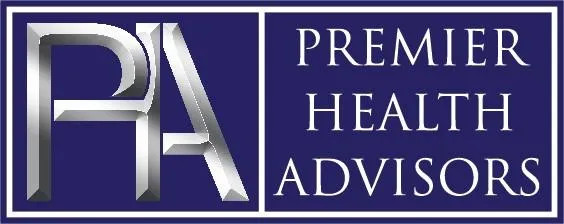Dental & Vision Plans
Dental
&
Vision Plans
Our Experts
Will Navigate You Through The Process
Our Experts Will Navigate You Through The Process
Our Advisors have access to all of the industry-leading Dental and Vision Carriers. Let us help find the right plan for you, your family or your business.
We at Premier Health Advisors are here to help you navigate through this entire process. The choices you make now may affect your health care needs for the rest of your life. Having the right plan may allow you to have more freedom in choosing your doctors, hospitals, and other medical services. Let us guide you in the right direction and help you find the right plan that is affordable while meeting your needs.
Dental Insurance
Healthy smile, healthy you: The importance of oral health
Regular dentist visits can do more than keep your smile attractive – they can also tell dentists a lot about your overall health, including whether or not you may be at risk for chronic disease.
New research suggests that the health of your mouth mirrors the condition of your body as a whole. For example, when your mouth is healthy, chances are your overall health is good, too.
On the other hand, if you have poor oral health, you may have other health problems. Research also shows that good oral health may actually prevent certain diseases from occurring.

Dental Insurance
Healthy smile, healthy you: The importance of oral health
Regular dentist visits can do more than keep your smile attractive – they can also tell dentists a lot about your overall health, including whether or not you may be at risk for chronic disease.
New research suggests that the health of your mouth mirrors the condition of your body as a whole. For example, when your mouth is healthy, chances are your overall health is good, too.
On the other hand, if you have poor oral health, you may have other health problems. Research also shows that good oral health may actually prevent certain diseases from occurring.


Gum disease and health complications
According to the Academy of General Dentistry, there is a relationship between gum (periodontal) disease and health complications such as a stroke and heart disease. Women with gum disease also show higher incidences of pre-term, low birth-weight babies.
Other research shows that more than 90% of all systemic diseases (diseases involving many organs or the whole body) have oral manifestations, including swollen gums, mouth ulcers, dry mouth and excessive gum problems.
Such diseases include
Diabetes
Leukemia
Oral Cancer
Pancreatic Cancer
Heart Disease
Kidney Disease
Since most people have regular oral examinations, their dentist may be the first health care provider to diagnose a health problem in its early stages.
Other research shows that more than 90% of all systemic diseases (diseases involving many organs or the whole body) have oral manifestations, including swollen gums, mouth ulcers, dry mouth and excessive gum problems.
Poor oral health can lead to problems
If you don’t take care of your teeth and gums, your poor oral hygiene can actually lead to other health problems, including:
Oral and facial pain. According to the Office of the Surgeon General, this pain may be largely due to infection of the gums that support the teeth and can lead to tooth loss. Gingivitis, an early stage of gum disease, and advanced
gum disease affect more than 75% of the U.S. population.
Problems with the heart and other major organs. Mouth infections can affect major organs. For example, the heart and heart valves can become inflamed by bacterial endocarditis, a condition that affects people with heart disease or anyone with damaged heart tissue.
Digestion problems. Digestion begins with physical and chemical processes in the mouth, and problems here can lead to intestinal failure, irritable bowel syndrome and other digestive disorders.


What you can do
Seeing a dentist regularly helps to keep your mouth in top shape and allows your dentist to watch for developments that may point to other health issues.
A dental exam can also detect poor nutrition and hygiene, growth and development problems and improper jaw alignment. Provide your dentist with a complete medical history and inform him or her of any recent health developments, even if they seem unrelated to your oral health.

What you can do
Seeing a dentist regularly helps to keep your mouth in top shape and allows your dentist to watch for developments that may point to other health issues.
A dental exam can also detect poor nutrition and hygiene, growth and development problems and improper jaw alignment. Provide your dentist with a complete medical history and inform him or her of any recent health developments, even if they seem unrelated to your oral health.
At home, you can practice good oral hygiene:
Brush twice a day for at least two minutes, using fluoridated toothpaste.
Floss daily to remove plaque from places your toothbrush can't reach.
Eat a healthy diet to provide the nutrients necessary (vitamins A and C, in particular) to prevent gum disease.
Avoid cigarettes and smokeless tobacco, which are known to contribute to gum disease and oral cancer.
Visit the dentist regularly for cleanings and exams. This is one of the most effective ways to detect the early signs of gum disease.

© 2023 | All Rights Reserved | Developed by Kean On Biz

